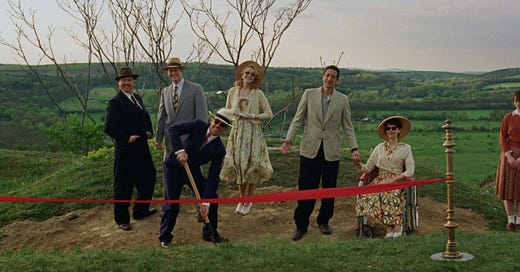Overture
There’s a moment in The Brutalist that I cannot get out of my head.
Over an hour into the film, architect László Toth (Adrien Brody) is having a conversation with wealthy American benefactor Harrison Lee Van Buren (Guy Pearce), who has invited László to a party at his estate to discuss a major, multi-pronged construction project he is looking to …
Keep reading with a 7-day free trial
Subscribe to cc: helmet girl to keep reading this post and get 7 days of free access to the full post archives.




